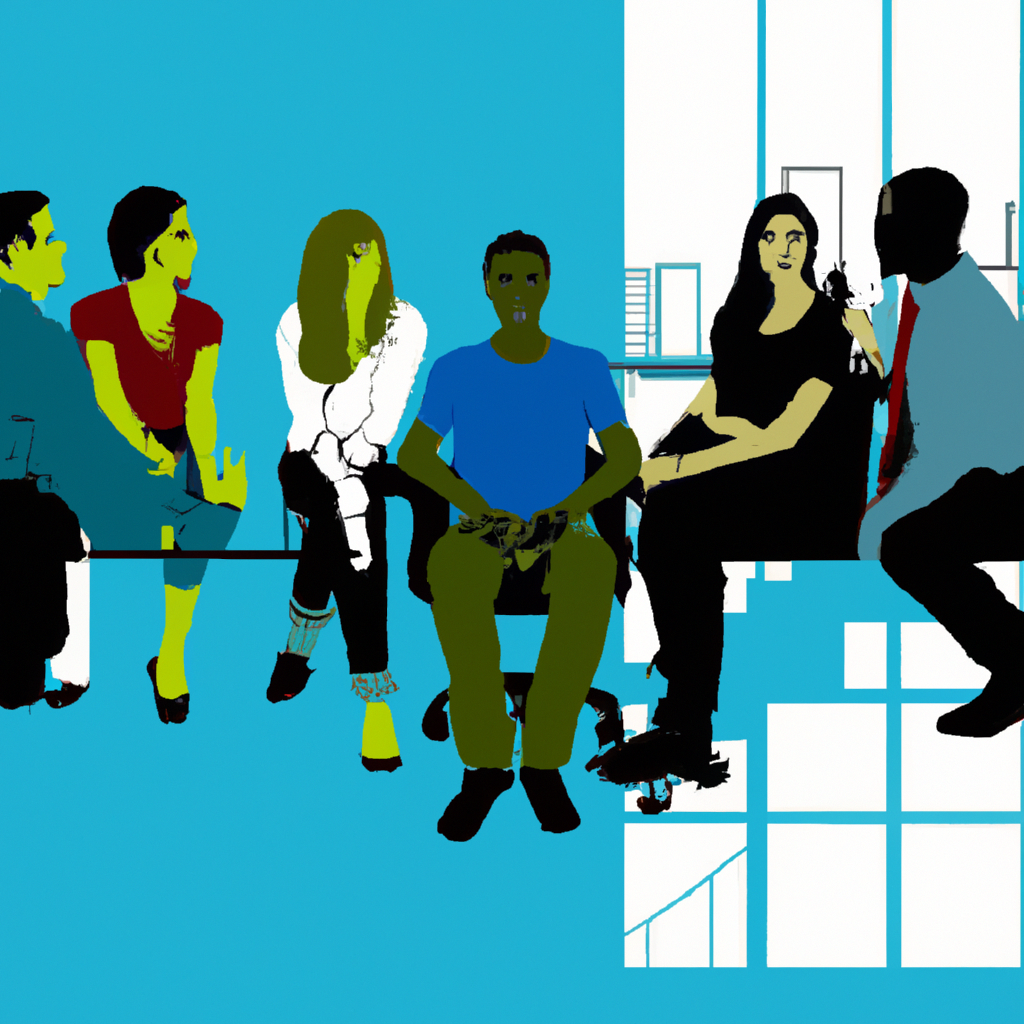After you’ve successfully completed a job interview, it’s important to maintain momentum by following up appropriately. But what exactly are the best practices for following up after an interview? This article will provide you with valuable insights and tips to ensure you make a lasting impression post-interview. From sending a personalized thank-you note to timing your follow-up communication effectively, we’ve got you covered. Discover the strategies that will help you stand out from the competition and increase your chances of landing that dream job. So, let’s dive in and explore the best practices for following up after an interview!

Timing of the Follow-Up
After completing a job interview, it’s important to follow up in a timely manner. The first step is to send a thank-you note within 24 hours of the interview. This small gesture shows your appreciation for the opportunity to interview and keeps you fresh in the interviewer’s mind.
However, it’s also essential to wait for the indicated follow-up time before reaching out again. If the interviewer mentioned a specific timeframe for a decision, respect that timeline and avoid constant and unnecessary follow-ups.
Additionally, consider the company’s interview process. Some companies have a longer decision-making process that may take several weeks. In such cases, it’s important to remain patient and avoid contacting the company too frequently. Understanding the company’s timeline will help you determine when it’s appropriate to follow up.
Thank-You Note Etiquette
Sending a thank-you note is a crucial step in the follow-up process. It demonstrates your appreciation for the opportunity to interview and helps you stand out from other candidates. Here are some important tips for crafting a professional and effective thank-you note:
- Use a professional and polite tone throughout the note. Remember to address the interviewer by name and maintain a respectful tone.
- Personalize the note by referencing specific details from the interview. This shows that you were actively listening and paying attention during the conversation.
- Express gratitude for the opportunity to interview and for the interviewer’s time and consideration.
- Briefly reiterate your interest in the position and your qualifications. Let the interviewer know why you are the right fit for the role.
- Proofread the note before sending to ensure there are no grammatical or spelling errors. Sending an error-free note demonstrates your attention to detail.
Taking the time to craft a thoughtful and well-written thank-you note can leave a positive impression on the interviewer and increase your chances of being selected for the position.
Email or Postal Mail
When deciding how to send your follow-up message, email is generally the preferred method. Email is quick, convenient, and allows for easy tracking of communication. It also aligns with the modern business environment, where most correspondence is conducted digitally.
However, there may be situations where sending a follow-up message via postal mail can add a personal touch. Postal mail can be ideal for instances where you want to stand out or if the company has a more traditional culture. However, keep in mind that postal mail may take longer to reach the recipient, so factor in the timing when deciding which method to use.
Ultimately, the decision to choose email or postal mail depends on the company’s preference and the impression you want to make.

Following Up on Phone Interviews
Following up after a phone interview is essential to maintain a positive rapport with the interviewer and keep the conversation going. Here are some guidelines to follow when following up after a phone interview:
- Start by thanking the interviewer for their time on the call. Express appreciation for the opportunity to speak with them and discuss your qualifications.
- Ask about the next steps in the hiring process, such as when they plan to make a decision or when they expect to have more information.
- If you haven’t already, request the interviewer’s contact information, such as their email address or phone number. This allows you to easily follow up in the future.
By following up after a phone interview, you show your continued interest in the position and leave a positive impression on the interviewer.
Following Up after Face-to-Face Interviews
After a face-to-face interview, it’s crucial to follow up with a personalized thank-you email to each interviewer. This shows that you value their time and effort in meeting with you. Here are some guidelines to follow when composing your follow-up email:
- Send a separate email to each interviewer, addressing them by name. This personal touch demonstrates your attention to detail and respect for each individual’s role in the hiring process.
- Reference specific points from the interview, such as topics discussed or questions asked. This shows that you were actively engaged and reinforces your qualifications.
- Express continued interest in the position and the company. Let the interviewers know that you are excited about the opportunity and highlight why you are a strong fit.
- Politely inquire about the timeline for decision-making. This information will help you gauge when it’s appropriate to follow up again.
By sending personalized follow-up emails, you demonstrate your professionalism, gratitude, and genuine interest in the position.
Following Up with Additional Information
If the interviewer requested additional documentation or if you have any relevant qualifications that were not discussed during the interview, it’s important to provide this information promptly. Here are some tips for following up with additional information:
- Gather all requested documentation and ensure it is complete and accurate before sending it to the interviewer.
- If you have any relevant qualifications or experiences that were not discussed during the interview, consider including them in your follow-up communication.
- Address any concerns or questions that were raised during the interview. Clarify any misunderstandings or provide further explanation if needed.
Providing additional information demonstrates your commitment to the position and shows that you are proactive in addressing any gaps or concerns that may have arisen during the interview.
Persistence and Follow-Up Frequency
Following up after an interview is important, but it’s crucial to find the right balance between being proactive and respectful. Here are some guidelines to keep in mind:
- Wait for a response before following up. Give the interviewer some time to review your application and make a decision before reaching out again.
- If you haven’t received a response within a reasonable timeframe, typically one to two weeks, it’s appropriate to follow up once or twice to inquire about the status of your application.
- Space out subsequent follow-ups appropriately. Bombarding the interviewer with numerous follow-up messages can come across as desperate or pushy. Allow sufficient time between follow-ups to give the employer the opportunity to respond.
By maintaining a courteous and professional approach, you can demonstrate your interest in the position without crossing any boundaries.
Contacting Multiple Interviewers
In some cases, you may have interviewed with multiple people within the company. When following up, it’s important to send separate emails to each interviewer. Here are some tips for contacting multiple interviewers:
- Tailor the message to each person. Mention specific points discussed during the interview with that individual to show that you value their input and perspective.
- Avoid excessive repetition between emails. While it’s important to express your gratitude and interest in each email, be mindful of not copying and pasting the same content repeatedly.
By personalizing your follow-up emails to each interviewer, you demonstrate your professionalism and genuine interest in building rapport with each member of the hiring team.
Keeping the Conversation Professional
When following up after an interview, it’s crucial to maintain a professional and polished demeanor. Here are some guidelines to help you keep the conversation professional:
- Avoid sounding desperate or pushy. While it’s important to express your interest in the position, avoid coming across as overly eager or aggressive.
- Maintain a confident and grateful attitude in your follow-up communications. Show enthusiasm for the opportunity and your capabilities while remaining humble and respectful.
- Double-check spelling and grammar in all your communications. Sending error-free emails and notes demonstrates your attention to detail and professionalism.
By exhibiting professionalism in your communication, you leave a positive impression on the interviewer and enhance your chances of being considered for the position.
What to Do if You Don’t Hear Back
It can be disheartening not to receive a response after following up on an interview. However, it’s important not to lose hope and continue taking proactive steps. Here are some guidelines for what to do if you don’t hear back:
- Patience is key. Remember that the hiring process can sometimes take time, especially if multiple candidates are being considered.
- Consider reaching out one last time if a reasonable amount of time has passed since your initial follow-up. Politely inquire about the status of the hiring process and express your continued interest in the position.
- Continue with your job search and networking efforts. Don’t put all your eggs in one basket. Casting a wide net and exploring multiple opportunities will increase your chances of success.
By maintaining a positive mindset and continuing to pursue other opportunities, you can navigate the post-interview period with grace and resilience.



